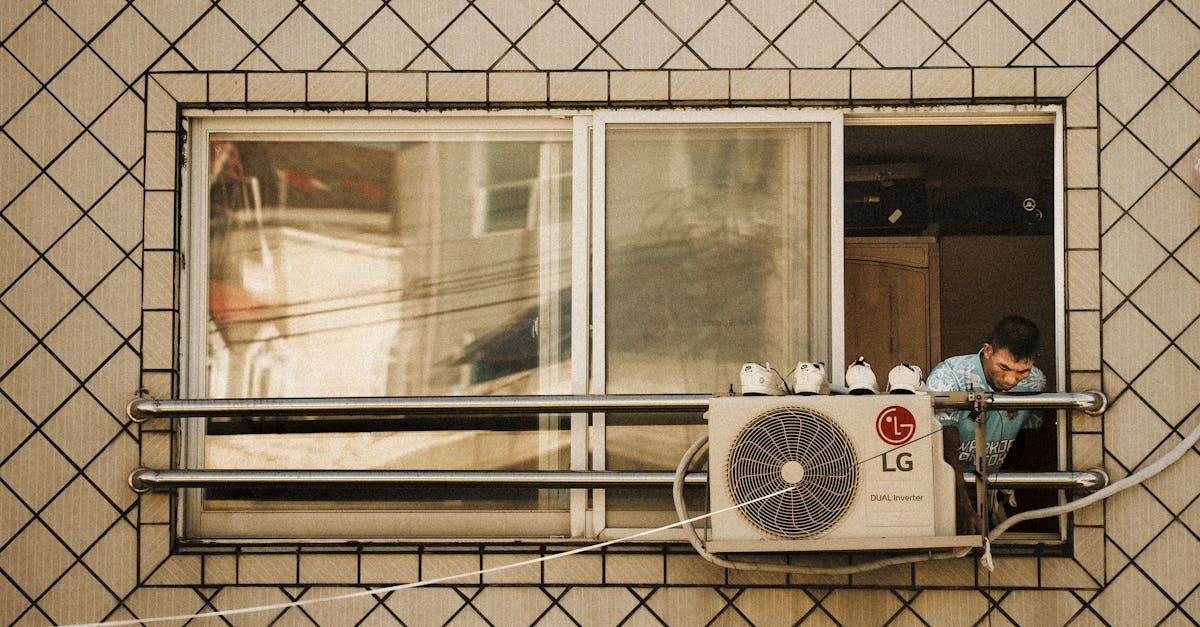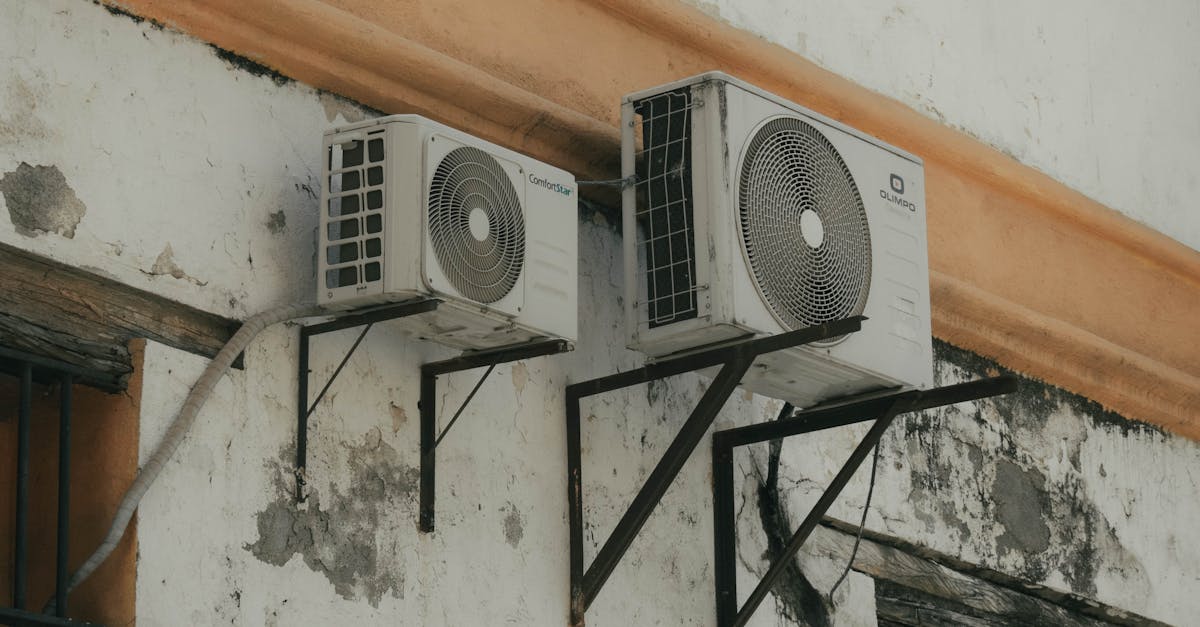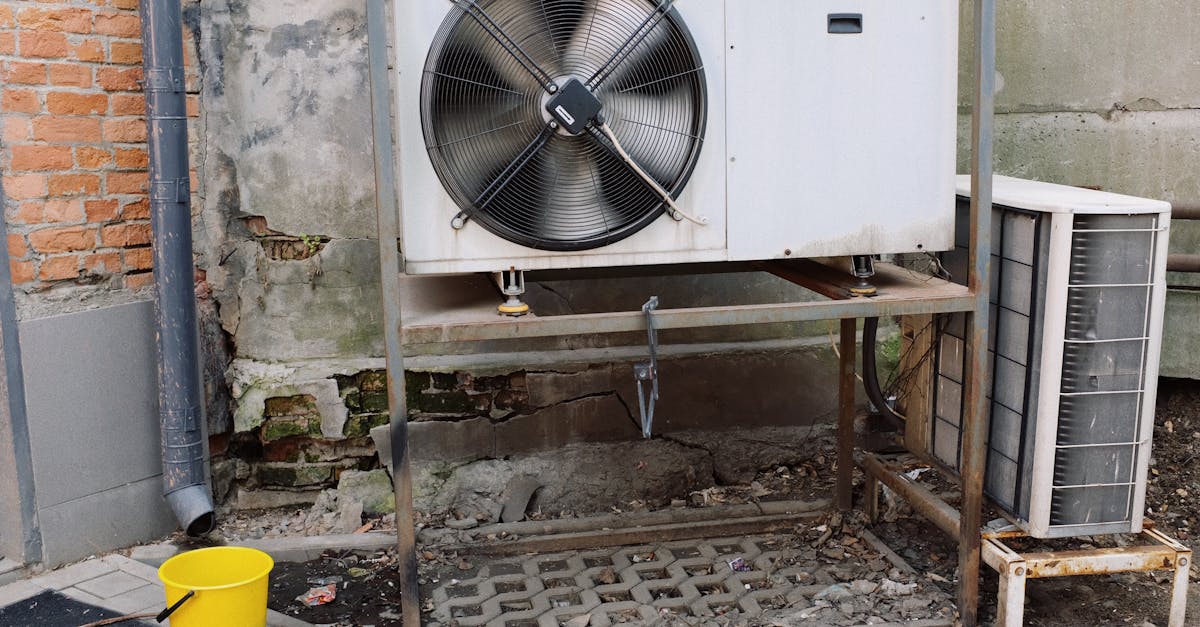
Table Of Contents
Environmental Impact and Regulations
Water-cooled air conditioning systems, while effective at regulating temperatures, raise important environmental concerns that are subject to increasing scrutiny. The use of large volumes of water can place a strain on local water resources, particularly in areas challenged by droughts or water scarcity. Regulations surrounding water usage for cooling purposes are evolving, with municipalities seeking to safeguard their water supplies. In Sutton Coldfield, West Midlands, local authorities may implement guidelines to ensure that businesses adopting these systems comply with sustainable water management practices.
In addition to water consumption, the environmental impact of the refrigerants employed in these systems is also under scrutiny. Many refrigerants have been identified as potent greenhouse gases, contributing to climate change when released into the atmosphere. Consequently, regulations are being developed to limit the use of harmful substances and promote alternatives with lower global warming potential. For those investing in water cooled air conditioning in Sutton Coldfield, West Midlands, recognising these regulatory frameworks is crucial to ensure compliance and support sustainable practices in their operations.
Compliance with Standards
Compliance with environmental regulations is crucial for water-cooled air conditioning systems. In Sutton Coldfield, West Midlands, local guidelines ensure that these systems operate within specified limits to minimise environmental impact. Regular assessments and adherence to standards prevent harmful emissions and promote efficient water usage. Entities installing such systems must be aware of both national and local regulations that govern the operation and maintenance of air conditioning units.
Ensuring compliance also involves staying updated with evolving environmental policies. In Sutton Coldfield, businesses and homeowners alike must engage with relevant authorities to verify that their water-cooled air conditioning systems meet current standards. This vigilance safeguards not only the installation but also the broader community by promoting sustainable practices that contribute to better air quality and reduced energy consumption.
Alternatives to Water-Cooled Air Conditioning
Alternative cooling options provide diverse methods to achieve comfort without the use of water-cooled systems. Air-cooled air conditioning systems, for instance, utilise ambient air for heat exchange. These systems tend to require less maintenance and do not rely on a water supply, making them a practical choice for many. In regions like Sutton Coldfield, West Midlands, where water conservation can be a priority, air-cooled systems can be particularly appealing for residential and commercial settings alike.
Another viable alternative is the use of evaporative cooling technology. This method draws in warm air, which then passes through water-saturated materials, reducing its temperature through evaporation. This approach uses significantly less energy than traditional systems. In addition, evaporative coolers work efficiently in areas with low humidity, providing an effective solution for cooling environments in the West Midlands, including Sutton Coldfield. Each alternative offers unique benefits, catering to varied climate needs and operational requirements.
Exploring Other Cooling Options
As businesses and homeowners seek efficient cooling solutions, alternatives to water-cooled air conditioning are becoming increasingly popular. Options such as split systems, evaporative cooling, and even geothermal systems offer unique advantages depending on the specific needs and environmental conditions. These alternatives have garnered attention for their energy efficiency and lower operational costs, making them appealing choices for many. The flexibility of installation locations further enhances their attractiveness, eliminating some of the constraints associated with traditional cooling systems.
In areas like Sutton Coldfield, West Midlands, where water resources may vary, exploring other cooling options can be particularly beneficial. For example, air-source heat pumps leverage ambient air to provide heating and cooling, presenting a sustainable alternative that reduces reliance on water-intensive systems. Other innovative solutions, such as thermal energy storage, allow for cooling off-peak hours, ultimately lowering energy bills. Carefully assessing these options ensures that residential and commercial spaces can enjoy effective climate control while minimising environmental impact.
Benefits of Water-Cooled Systems
Water-cooled air conditioning systems offer several advantages compared to traditional air conditioning units. These systems typically operate more quietly, contributing to a more pleasant indoor environment. Their efficiency also tends to be higher, particularly for large commercial buildings, as they can effectively manage substantial heat loads. By utilising water as a coolant, these systems often consume less energy, which can lead to lower utility bills over time. As a result, businesses in areas such as Wolverhampton, West Midlands, may find these systems particularly beneficial for both cost-effectiveness and comfort.
Another significant benefit of water-cooled systems lies in their longevity and low maintenance requirements. These units are designed to endure harsh conditions and usually come with robust components that reduce the frequency of repairs. Higher initial costs may be offset by their durability and efficiency, making them a wise long-term investment. For companies aiming to stay competitive while being conscientious about energy consumption, investing in water-cooled air conditioning in Wolverhampton, West Midlands, aligns well with both financial and environmental goals.
Advantages Over Traditional Systems
Water-cooled air conditioning systems offer several advantages when compared to traditional air conditioning models. Their efficiency in energy consumption is often superior, leading to lower operational costs over time. Businesses in areas such as Wolverhampton, West Midlands, have noted significant reductions in electricity bills, particularly during peak summer months when cooling demands are high. The ability to utilise water as a cooling medium contributes to this enhanced efficiency, allowing for better heat exchange and ultimately leading to greater overall performance.
Furthermore, water-cooled systems are typically quieter than their air-cooled counterparts. This aspect is particularly beneficial in residential and commercial settings where noise can be a concern. The quieter operation of water-cooled air conditioning units not only contributes to a more comfortable environment but also reduces noise pollution in densely populated areas. In Wolverhampton, West Midlands, a focus on sustainable and effective cooling solutions makes these systems an appealing choice for both residential and business applications.
FAQS
What are the initial costs associated with water-cooled air conditioning systems?
The initial costs for water-cooled air conditioning systems can be higher than traditional systems due to the need for additional infrastructure, such as cooling towers and plumbing.
How do the operating costs of water-cooled systems compare to traditional air conditioning?
Operating costs for water-cooled systems can be lower in the long run, as they often use less energy to cool spaces compared to traditional air conditioning systems.
Are there specific environmental regulations that affect the cost of water-cooled air conditioning?
Yes, various environmental regulations may require compliance measures that can add to the overall cost of installation and operation of water-cooled systems.
What are some alternatives to water-cooled air conditioning, and are they less expensive?
Alternatives such as air-cooled systems, evaporative coolers, and split systems can be less expensive initially but may have higher operating costs in terms of energy consumption.
Do water-cooled air conditioning systems provide any financial incentives or rebates?
Some utility companies and government programmes offer financial incentives or rebates for installing energy-efficient water-cooled systems, which can help offset initial costs.


